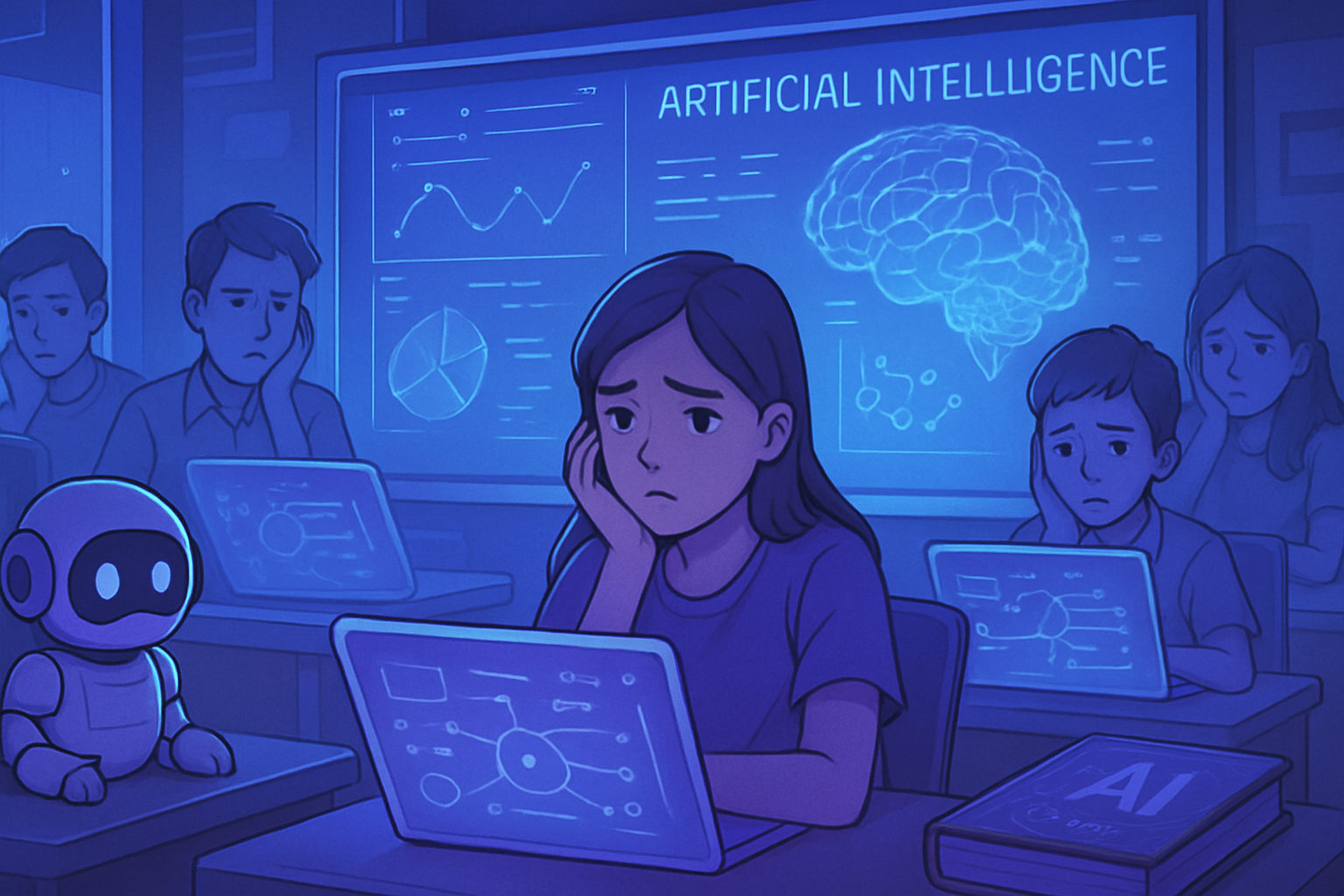The recent decision by South Korea to suspend its program for AI-based textbooks questions the foundations of innovative digital education. *The implementation of such a project*, initially promising, revealed significant flaws, including technical problems and privacy concerns. *The impact of this initiative on teachers and students* raises questions about the ability of educational systems to adopt technological solutions.
Background of the AI Textbook Introduction Program
The South Korean government allocated 1.2 trillion won, equivalent to about 850 million dollars, for the development of AI-powered textbooks. This ambitious project aimed to modernize education through new technologies. However, less than four months after its launch, the program was suspended, raising questions and criticisms regarding the quality of the proposed teaching materials.
Issues Faced by Students and Teachers
Students and teachers quickly expressed concerns about the inaccuracies of the content in the new textbooks. A student reported that all classes had suffered delays due to technical failures, making it difficult to concentrate on lessons. The textbooks failed to meet individual pedagogical needs, leading to increased frustration.
Challenges of Evaluation and Implementation
The development of the textbooks also raised other concerns, such as privacy protection and the increased workload for teachers. The design timelines for traditional textbooks, which often stretch over several months, contrast with the speed of creating AI textbooks. Legislator Kang Kyung-sook raised questions about how a product meant for children could be developed so hastily, highlighting concerns about their verification.
Political and Social Implications
The withdrawal of the AI textbook program is also attributed to the politicization of the issue and governmental changes that occurred during its implementation. In a context of political tensions, trust in new educational initiatives is weakened. This reversal raises questions about the future of integrating artificial intelligence in education in South Korea.
Comparison with Other Technological Initiatives
Similar attempts to integrate technology into education have met with varied outcomes internationally. The example of the Online Schools Project in South Africa, which cost one billion rand before being abandoned, illustrates the financial and logistical challenges that persist in this field. Other projects, such as 1BestariNet in Malaysia, have also been abandoned after incurring billions in costs, highlighting the inherent difficulties in modernizing educational systems.
Reflection on the Future of Digital Textbooks
The rapid failure of the South Korean project underscores the complexity of adopting educational tools based on artificial intelligence. Academic research, including a recent study from the Massachusetts Institute of Technology, indicates that the use of AI could reduce long-term brain activity in students, thereby questioning the relevance of these technologies for intellectual development.
To delve deeper into this reflection, you can consult articles on related topics such as the impact of historical videos generated by AI on education or teaching the fundamentals of artificial intelligence to students.
Furthermore, Bill Gates recently highlighted the AI revolution in Africa, advocating the need for thoughtful investment in this rapidly expanding field, as evidenced by this article: the AI revolution according to Bill Gates.
Frequently Asked Questions about the AI Textbook Program in South Korea
Why did South Korea decide to abandon its AI-based textbook program?
The South Korean government suspended the program after only four months due to allegations of inaccurate textbooks, concerns about data privacy, and increased workloads for teachers and students.
What were the main concerns regarding AI textbooks?
Concerns included technical issues delaying classes, a lack of content suitable for different learning levels of students, and doubts about the rigorous verification of educational content meant for children.
What was the cost of developing AI textbooks?
The cost for the development of the textbooks was about 1.2 trillion won, or approximately 850 million dollars, half of which was invested by publishers.
What impact did the use of these textbooks have on students’ learning experience?
Some students reported difficulties concentrating and keeping up with the curriculum due to technical defects and content that was inappropriate for their study levels.
How did legislators perceive the decision to abandon the program?
Discussions within the National Assembly highlighted concerns about the rush in developing the textbooks, which requires more rigorous verification processes, especially for content intended for young audiences.
What has been the trajectory of AI textbook usage in schools?
After being made mandatory at the beginning of the school year, the number of schools using these textbooks halved after just one semester.
Have there been other similar projects that have failed in the field of education worldwide?
Yes, projects such as the Online Schools Project in South Africa and 1BestariNet in Malaysia have also encountered similar failures, often costing considerable sums without achieving the expected results.
What measures could be taken to improve the integration of AI in education in the future?
It is crucial to ensure rigorous content development, involve teachers in the creation process, and consider the individual learning context of students before implementing such technologies.






